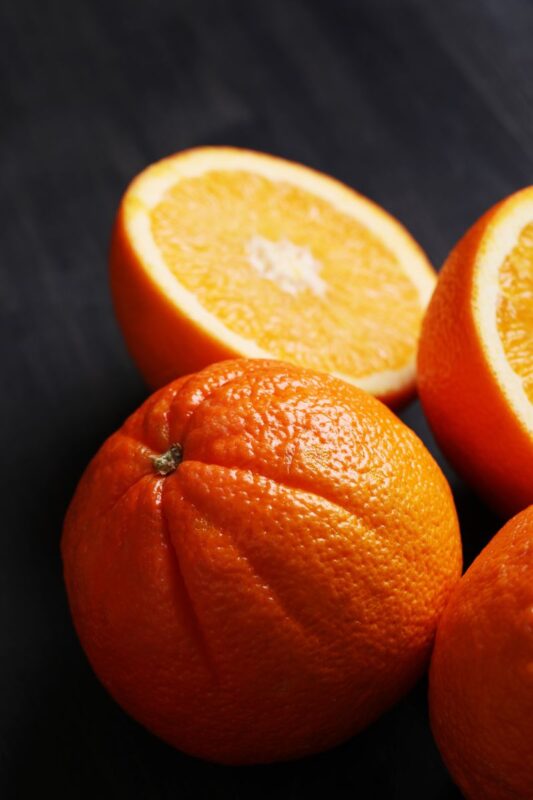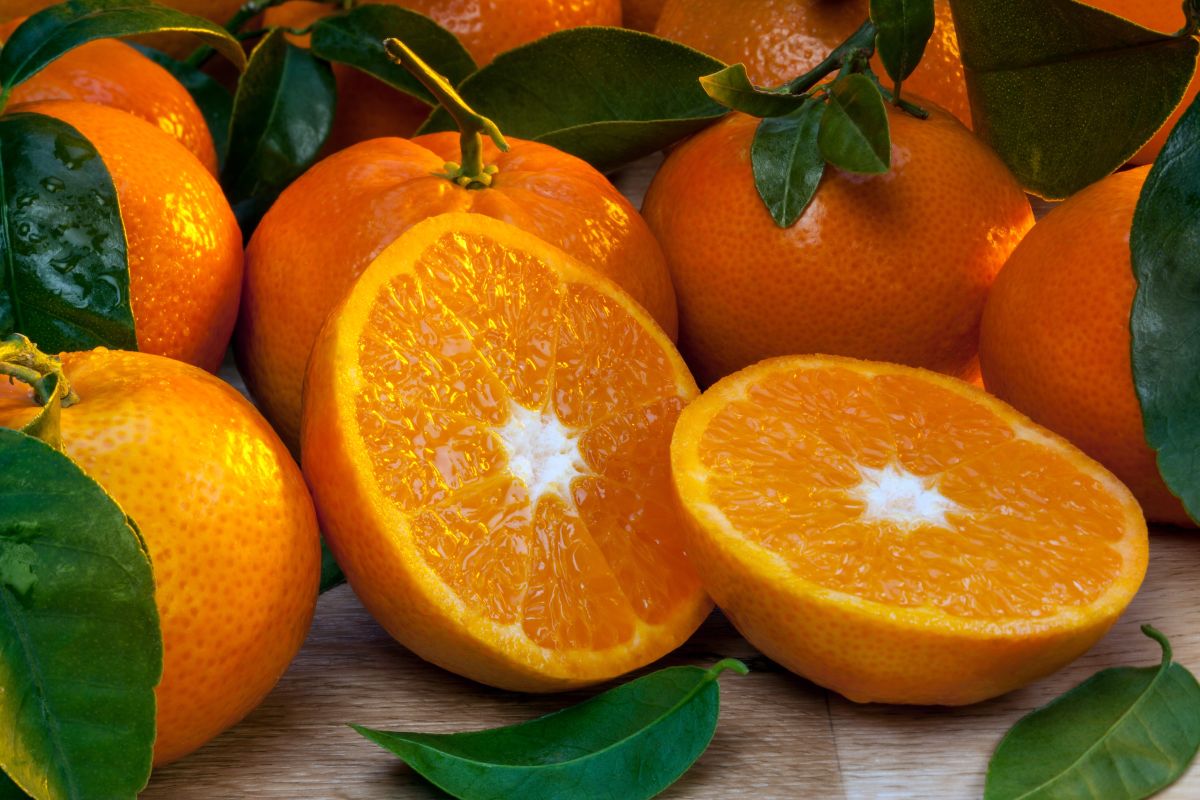With the continuous rise of fatty liver disease, people are wondering what best to eat to improve liver health, leading to the big question of the day: are oranges good for fatty liver?
You can eat oranges in moderation if you suffer from fatty liver disease. They have anti-inflammatory capabilities, are rich in vitamins, minerals and anti-oxidants, as well as natural sugars which are preferred to the regular white sugar.
When it comes to oranges – and fruits in general – and the fatty liver disease, some doctors recommend cutting them off the diet because of the high sugar content in them.
While it is true that sugar is bad for our health – especially when we suffer from NAFLD – it is also true that the natural sugars in fruits and oranges are a better choice than the regular, processed sugar.
In the end, our bodies have been consuming these natural sugars for hundreds of thousands of years – while white sugar is just several hundred years old. As a result, many doctors and scientists believe that our bodies are better prepared to handle the natural sugars in fruits.
And oranges have around 12 grams of carbohydrates per 100 grams (one medium orange), but around 3 grams of those are fibers, which are healthy and help our digestive system, as well as slow down the absorption of sugar.

Sure, even though eating an orange is much better than eating 12 grams of raw sugar, this doesn’t mean that you should eat pounds of this delicious fruit each day.
With fatty liver, moderation is key, so I only recommend having one to two medium oranges per day – and make sure that you don’t eat more carbs than you should when all your daily meals are taken into account.
I personally ate oranges after being diagnosed – but usually one every now and then – and I had no problems reversing my condition. I also ate many other fruits, including bananas, apples, and basically everything that was in season and I still managed to reverse my fatty liver.
Are Oranges Good or Bad for Fatty Liver?

Unlike other superfoods, oranges are not a must eat if you suffer from NAFLD. But at the same time, as long as you eat them in moderation, you can have an orange or two without worrying that it will make your condition worse.
As long as you keep daily carb intake under control, you can have oranges and other fruits as snacks or during your meals. But don’t consider oranges a “must eat” to reverse your fatty liver!
Oranges are nutritious and contain antioxidants
Eating too many sugars causes our bodies to release chemicals that cause inflammations to the liver and other organs in the body. Not to mention the fact that sugar is turned into fat, which is something we don’t need more of if we have NAFLD.
Oranges are rich in phytochemical antioxidants known as polyphenols which reverse the effects of sugars and fats.
Further studies have shown that there’s more to oranges than meets the eye. Oranges contain carotenoids and vitamin C that mitigate oxidative stress by chemically interacting with free radicals reducing risks of inflammation.
Research at the University of Wisconsin concluded that consuming carotenoid-rich foods was related to reduced risks of fatty liver disease.
In addition to this, citrus fruits contain cryptoxanthin which has anti-inflammatory effects. Research done concludes that this pigment has positive benefits in NAFLD patients.
Oranges contain fibers that help the body metabolize fat and cholesterol, helping with weight management. Moreover, fibers increase satiety reducing your caloric intake. Oranges are also relatively low in calories.
Is freshly squeezed orange juice good for fatty liver?

While oranges can be consumed in moderation, things change if we decide to squeeze them and consume them as a juice.
This means that we shouldn’t drink orange juice – not even if it’s made from freshly squeezed oranges. When we do so, we lose most of the pulp of the fruit, with most of the fiber and part of the minerals and vitamins.
In other words, drinking orange juice means that we get a bigger hit of sugars without the additional beneficial effects of the other nutrients that the fruit has.
So unfortunately, just like with your general sodas and soft drinks, orange juice shouldn’t be consumed if you have a fatty liver. Eat the whole orange instead!
Best way to eat oranges with fatty liver
Eating your orange whole is better than fruit juice. Your orange contains fructose (sugar) and fiber (which slows down the absorption of sugar and aids digestion).
When making juice, we remove the pulp, the fiber in our oranges, reducing the satiety levels and enabling us to drink more than five oranges in juice form as opposed to one or two oranges whole.
Juice is unhealthy because, in the absence of fiber, fructose that is in a higher amount than in a whole orange, is absorbed in the liver immediately.
Since the liver is the only site of absorption in the body, it becomes too much work for the liver to handle. These excess sugars are converted to fat and cause fatty liver disease.
Conclusion
A healthy lifestyle that is made of a balanced diet and exercise can help you reverse fatty liver disease.
This “balanced diet” should include fruits, so oranges shouldn’t be avoided if you have been diagnosed.
Just remember to eat the whole fruit and not squeeze it into a juice and only have a maximum of two (ideally just one) medium oranges per day in order to keep the carbs under control.

I was diagnosed with a fatty liver back in 2014 and managed to reverse it by mid-2015. Since then, I’ve been studying it, continuously updating my knowledge with the latest scientific findings and practical approaches to give others the help they need to reverse their condition.
My approach to managing fatty liver is holistic, balancing scientifically-backed information with real-life, practical advice based on personal, direct experience.
I am also the admin of the Fatty Liver Support Group on Facebook and the Fatty Liver Subreddit.

